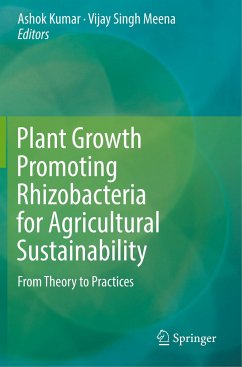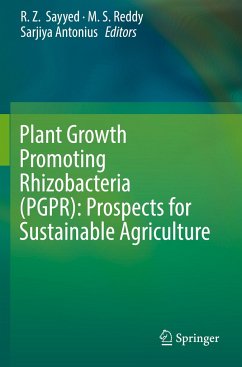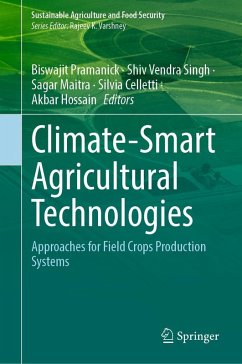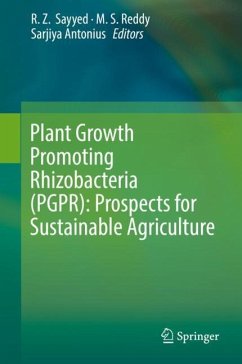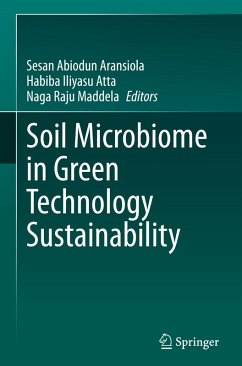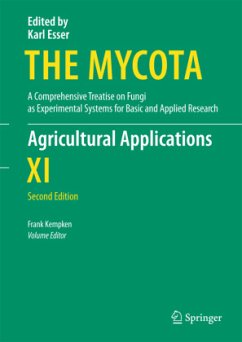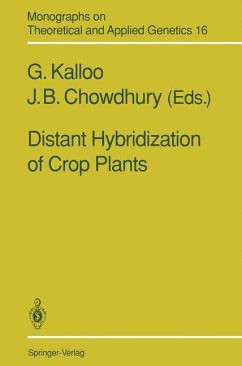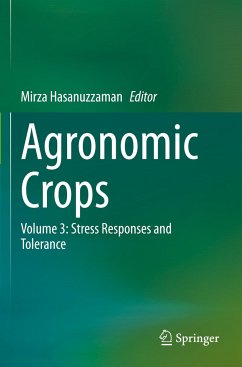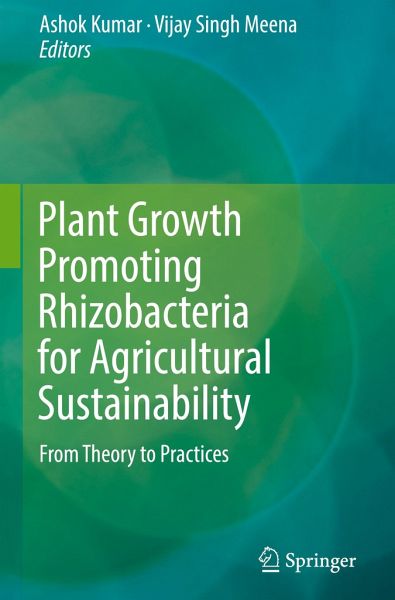
Plant Growth Promoting Rhizobacteria for Agricultural Sustainability
From Theory to Practices
Herausgegeben: Kumar, Ashok; Meena, Vijay Singh

PAYBACK Punkte
57 °P sammeln!
To meet the food security needs of the 21st century, this book focuses on ecofriendly and sustainable production technologies based on plant growth promoting rhizobacteria (PGPR). It is estimated that the global population could increase to 9 billion by 2050. Further, the amount of land devoted to farming has decreased. Soil is a living entity, and is not only a valuable natural resource for agricultural and food security, but also for the preservation of all life processes. Agricultural productivity rests on the foundation of microbial diversity in the soil, and in recent years, PGPR have eme...
To meet the food security needs of the 21st century, this book focuses on ecofriendly and sustainable production technologies based on plant growth promoting rhizobacteria (PGPR). It is estimated that the global population could increase to 9 billion by 2050. Further, the amount of land devoted to farming has decreased. Soil is a living entity, and is not only a valuable natural resource for agricultural and food security, but also for the preservation of all life processes. Agricultural productivity rests on the foundation of microbial diversity in the soil, and in recent years, PGPR have emerged as an important and promising tool for sustainable agriculture.
The injudicious use of agrochemicals by farmers has created a range of negative impacts, not only threatening the environment, but also destroying useful microorganisms in the soil. The efficient use of PGPR reduces the need for these chemicals while simultaneously lowering production costs. In turn, increased yields could provide a more favourable environment and encourage sustainability. This book assesses the impacts of PGPR on crops, environmental and socio-economic sustainability, and demonstrates these ecofriendly technologies' three critical advantages, namely (a) enhanced crop productivity, (b) reduced application of agrochemicals, and (c) increased incomes for farmers. Besides offering an economically attractive and ecologically sound means of augmenting the nutrient supply and combatting soil-borne pathogens, PGPR play an important part in boosting soil fertility, bioremediation and stress management for the development of ecofriendly and sustainable agriculture.
The injudicious use of agrochemicals by farmers has created a range of negative impacts, not only threatening the environment, but also destroying useful microorganisms in the soil. The efficient use of PGPR reduces the need for these chemicals while simultaneously lowering production costs. In turn, increased yields could provide a more favourable environment and encourage sustainability. This book assesses the impacts of PGPR on crops, environmental and socio-economic sustainability, and demonstrates these ecofriendly technologies' three critical advantages, namely (a) enhanced crop productivity, (b) reduced application of agrochemicals, and (c) increased incomes for farmers. Besides offering an economically attractive and ecologically sound means of augmenting the nutrient supply and combatting soil-borne pathogens, PGPR play an important part in boosting soil fertility, bioremediation and stress management for the development of ecofriendly and sustainable agriculture.



